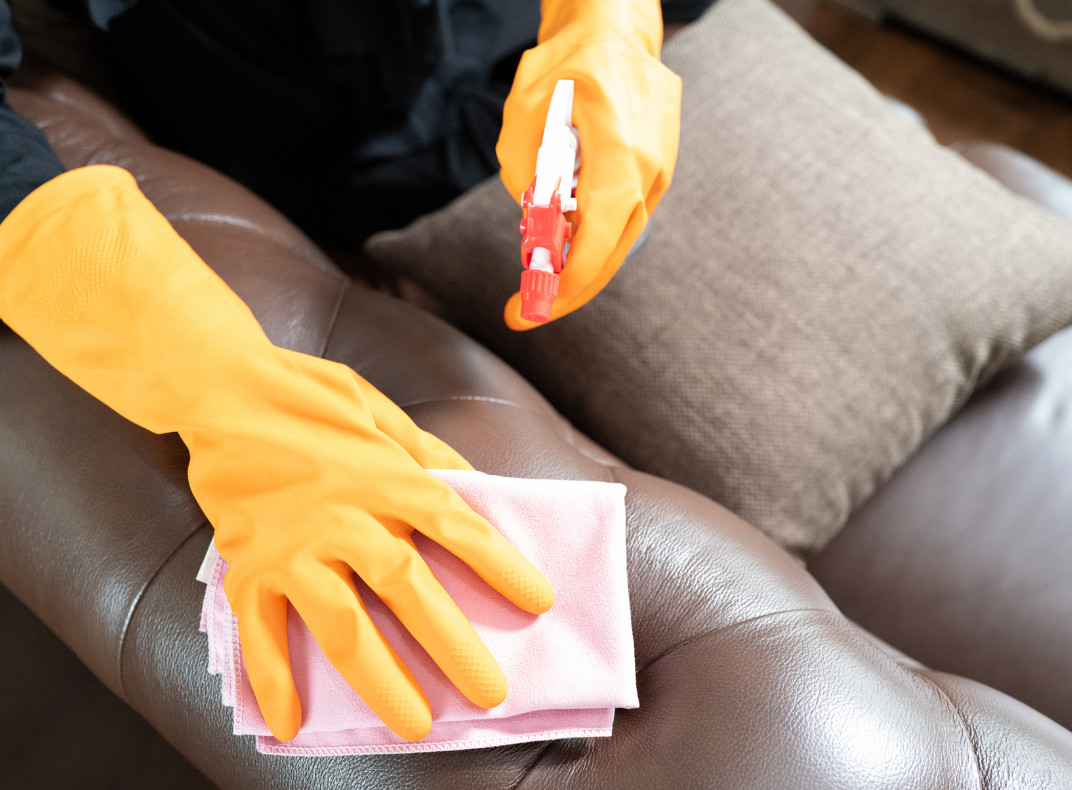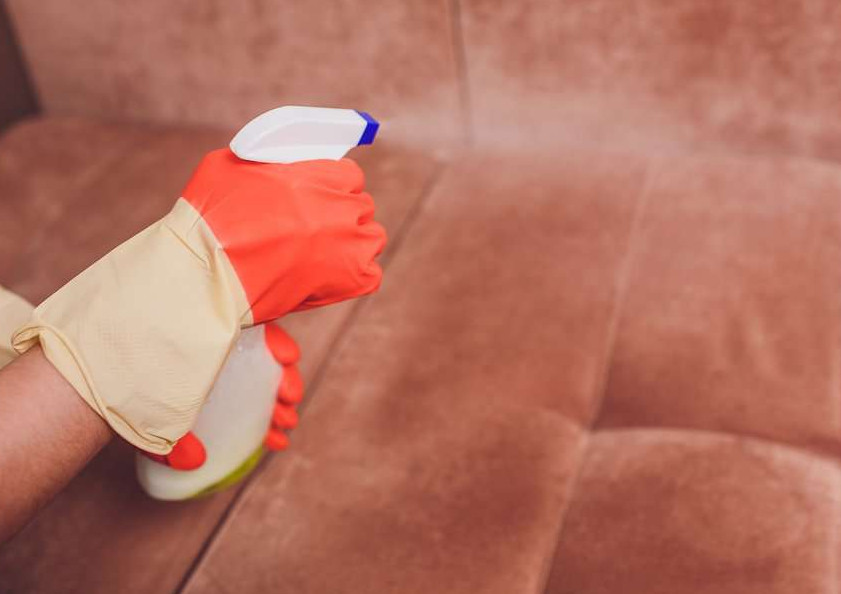How to clean a couch that smells
Couches are in the centre of our living rooms, and they are comfort, style and a place to have friends and family over. But because they’re constantly used, they absorb smells from spills, animals, sweat and life events. A stale couch is the worst thing that can happen to the ambience of your home and cleaning is needed. Using the combination of insider information, experiences, and real-world tips, in this guide we will cover all you need to know to make your odourless couch clean.
Knowing Where the Smell Comes From.
The first step before you move into cleaning is to determine the odour source. This is a process most, in my experience, skip, with half-baked solutions. Common causes include:
Grips and stains – The liquids, such as coffee, juice, or alcohol get in the material and padding, leaving a scent.
Pets – Pet poop, urine and hair makes a couch smell bad.
Mold and mildew – If a couch has been moist, mold or mildew could be to blame.
Odours from the body – The sweat and oils produced by skin contact can start to sit on top.
Food crumbs – Small food pieces left in cracks will ferment and give off a nasty smell.
When you know what the cause is, you can modify the cleaning procedure accordingly.

Preparation: The Path to Perfection Step by Step.
Cleaning is better when you prepare it well. Start by:
Cleaning couch – Get a vacuum cleaner with upholstery attachment and vacuum off dust, hair and crumbs. I suggest vacuuming the surface, but also under the cushions and in corners.
Test small area – When you use any cleaning agent, test it on a small place first, so it won’t get colored or damage.
Layla Armstrong, as the author of this article and a home management expert, says :
If you have removable covers on your couch, refer to the care label of the manufacturer. Some can be machine washed saving you time and energy.
You can also read these articles on our website:
Simple Home Cleansing Products For All Day Odors.
For petty odours or just cleaning, all natural cleaners can usually do the trick. Here are my favorite methods:
Baking Soda Treatment
Baking soda is a great deodorant. Sprinkle on the whole couch and especially in smelly spots. Give it 15 minutes minimum – longer if you can — then vacuum it off.

True Case: I had spilled a glass of milk on my couch and although I scrubbed it right up, the milky odor remained. One night of baking soda worked wonders to remove the stench.
Vinegar Solution
Prepare a spray bottle of equal parts white vinegar and water. Mist the couch a little bit so it doesn’t get all over the upholstery. : Let it air dry completely.
Expert Tip: A few drops of lavender or tea tree essential oil can hide the vinegar odor and add some antimicrobial activity.
Deep Cleaning for Persistent Odors
If natural isn’t sufficient, you have to clean really deep.
Steam Cleaning
Steam cleaners clean deep inside the fabric killing bacteria and extracting hidden odours. For strong odours, renting or buying a steam cleaner is a great investment.
Tip of the Experts: Don’t run your steam cleaner through water that is distilled to prevent mineral buildup. Be sure also to pick couch material that can be steam cleaned since some materials shrink or warp during the heat process.
Upholstery Shampoo
On fabric couches, use upholstery shampoo as directed. Scrub it using a soft bristled brush and wipe with a clean cloth to dry it off.
Personal Story: After a BBQ at my house, the smoke hanged on my couch. An upholstery shampoo with a new scent got rid of the stench for good.
Some Extras For Leather and Faux Leather Sofas
Sofas that are real leather or faux leather need different attention. Violent chemicals or liquid cleaners will harm them. Instead, use:
A little mild soap and warm water with a soft cloth.
Dedicated leather cleaners or conditioners to keep the surface moist and odour-free.
Professional Tip: Do not put leather couches in the sunlight after you clean them because this may crack or fade them.
Tackling Pet-Related Odors
Oodles of pets are also very recalcitrant, especially urine smells. Here’s how to handle them:
Enzyme Cleaners – Enzyme Cleaners are designed to degrade organic compounds, and neutralize odours right in your home.
Dog or Cat Hair Removal – Pick pet hair (which may harbor smells) with a lint roller or rubber gloves.
My Own Take: I have a dog, so having a couch cover or throw blanket at the spots where my dog sits helps to reduce odours and make it easier to clean.
Preventing Future Odors
Whenever your couch is clean, you can prevent that from smellin’ bad by taking preventative measures:
Vacuuming On a Weekly Basis – The vacuuming once a week keeps debris from piling up.
Using Fabric Protectors – They are water repellents that allow you to wipe up spills.
Rotating Cushions – Turning and flipping cushions distribute wear throughout, so you don’t have smells built up on one surface.
Airflow – Put your couch in a space where it can air-dry, without condensation.
Expert Tips: An air purifier is also a great way to eliminate any odours from your home if you have pets or smoke in your home.
When You Need the Experts to Come In.
If you still can’t remove the smell all, there are upholstery cleaners who can save the day. They have the equipment and knowhow to tackle even the most stubborn odours.
Personal Lesson: Having fought a mouldy couch in a damp apartment, I took the couch to a commercial cleaner. The results were perfect and I got to know some work is for experts.
Conclusion
Oozing couch cleaning doesn’t have to be a chore. If you know where to find the smell, prep and clean it in the right manner, you will be able to get your couch back to a new-clean condition. Add in preventive measures so that rotten odours never get the chance to creep back into your house.
Either you go natural (baking soda and vinegar), buy some deep cleaning products, or hire someone, the key is consistency. I know from personal experience that a fresh couch does not just make your home look great, it also makes it a happier and healthier home.
FAQ :
- How do you get the smell out of a fabric couch?
To remove odors from a fabric couch, start by vacuuming it thoroughly to remove dust and debris. Sprinkle baking soda over the surface, let it sit for 15-30 minutes, and then vacuum it up. Use a fabric-safe upholstery cleaner or a mixture of water and mild detergent to spot-clean any stains. For persistent smells, consider using a fabric deodorizer or steam cleaner. - What is the best cleaner for couch smell?
The best cleaner depends on the type of odor. Baking soda is excellent for neutralizing general smells, while white vinegar diluted with water works well for tougher odors. For pet smells, enzymatic cleaners are highly effective as they break down organic matter. Always test any cleaner on a small, hidden area first to ensure it doesn’t damage the fabric. - What causes a sofa to smell?
A sofa can develop odors due to spills, food crumbs, pet accidents, or prolonged exposure to smoke or humidity. Bacteria and mold growth in damp conditions can also cause unpleasant smells. Over time, body oils, sweat, and dust can accumulate in the fabric, contributing to persistent odors. - How to clean a fabric couch that smells like a dog?
To eliminate dog smells, vacuum the couch thoroughly to remove hair and dander. Use an enzymatic cleaner specifically designed for pet odors, as it breaks down organic compounds causing the smell. Sprinkle baking soda, let it sit, and vacuum it up. For deep cleaning, consider using a steam cleaner or hiring a professional upholstery cleaning service.
Article source:

I’ve been using baking soda for years to keep my couch fresh, and I swear by it! I sprinkle it generously, leave it for a few hours, and then vacuum it off. It works wonders, especially for food and pet odors. Don’t skip this step before trying more complex cleaners!
I tried the white vinegar solution, and it really helped with the musty smell I had from a damp couch. Just make sure to dry it properly afterward. It smells a bit strong during the cleaning, but it’s gone once it dries, and so is the odor!
After using an upholstery cleaner on my couch, I can honestly say it’s been the best option for those tough stains and lingering smells. I always test on a small area first to avoid any color mishaps. It’s a deep clean without the harsh chemicals!
I’ve been dealing with pet odors on my couch for months, and steam cleaning really helped! The steam deep-cleans and kills bacteria without using harsh chemicals.
Can I use baking soda on a leather couch to remove odors, or will it damage the material?
Hi Olivia! While baking soda is excellent for fabric upholstery, it’s not recommended for leather as it can be abrasive. For leather couches, consider using a leather-specific cleaner or a mild soap solution to safely eliminate odors.
Is it safe to use a steam cleaner on all types of couch fabrics, or are there materials I should avoid steaming?
Always check the care label on your couch. If it’s marked with an “S” (solvent-based cleaners only) or “X” (vacuum only), avoid steam cleaning to prevent damage.
How often should I vacuum my couch to keep it smelling fresh?
Hi Ava! Regular maintenance is key. Vacuuming your couch once a week helps prevent the buildup of dust, crumbs, and pet hair, keeping odors at bay.
“Can I use essential oils directly on my couch to mask unpleasant smells, or will that stain the fabric?
Applying essential oils directly can stain the fabric. Instead, mix a few drops with water in a spray bottle and lightly mist the couch. Always test a small, hidden area first to ensure there’s no discoloration.
What should I do if my couch still smells after trying baking soda and vinegar treatments?
Hi Isabella! If odors persist, it might be time to consult a professional upholstery cleaner. Deep-seated smells can be challenging to remove with home remedies alone.
Are there any natural alternatives to commercial upholstery cleaners that are safe for all fabric types?
A mixture of mild dish soap and water can serve as a gentle cleaner for many fabrics. However, always check your couch’s care label and test any solution on a hidden spot first.
How can I prevent mold and mildew from developing on my couch in a humid environment?
To prevent mold and mildew, ensure your living space is well-ventilated. Using a dehumidifier can also help control humidity levels, reducing the risk of mold growth on your couch.